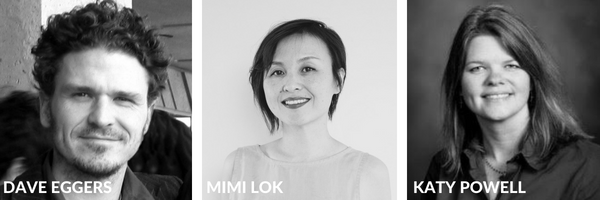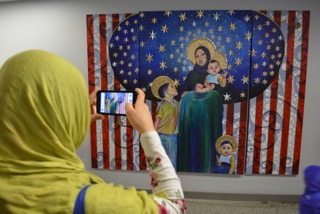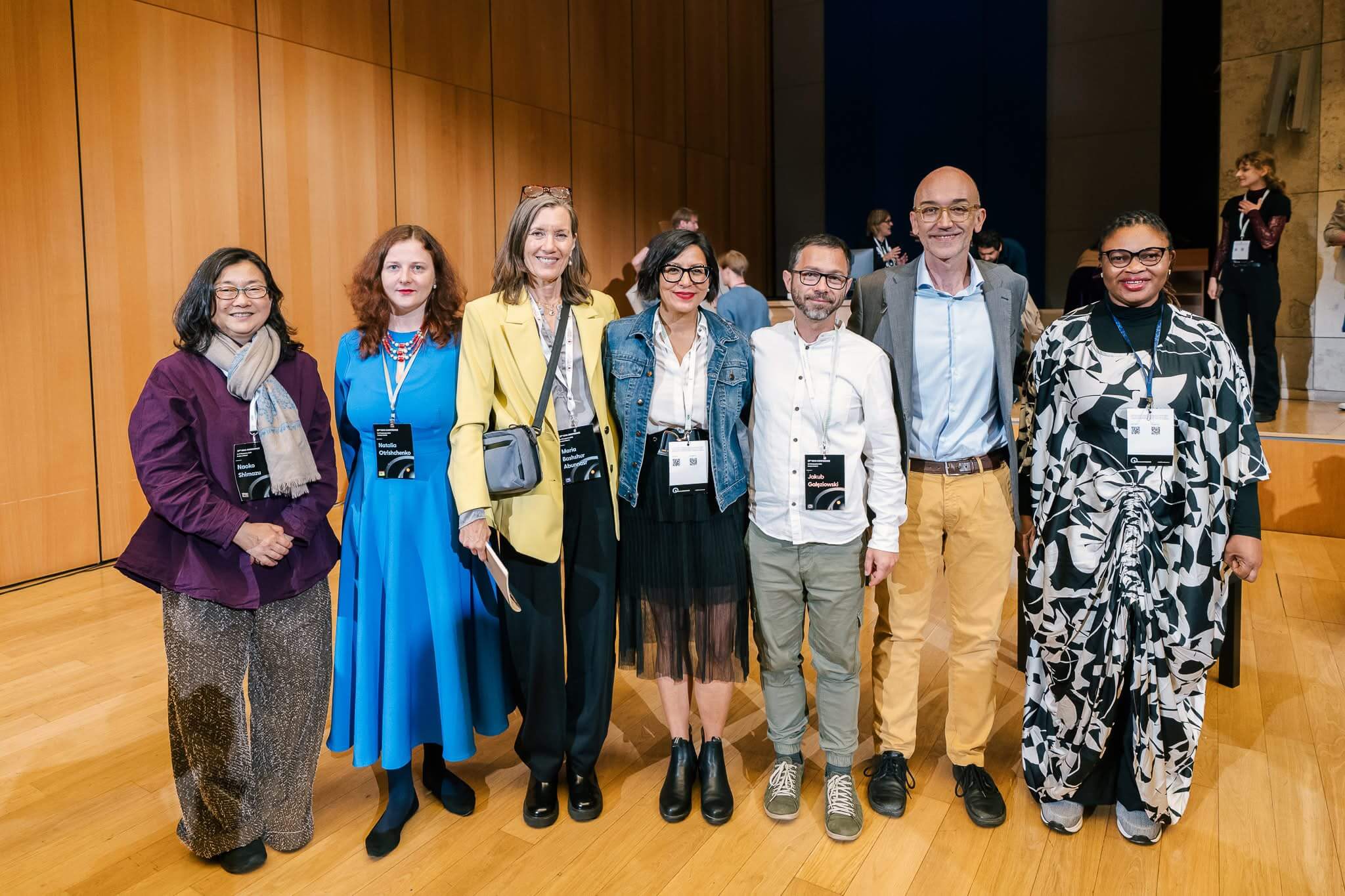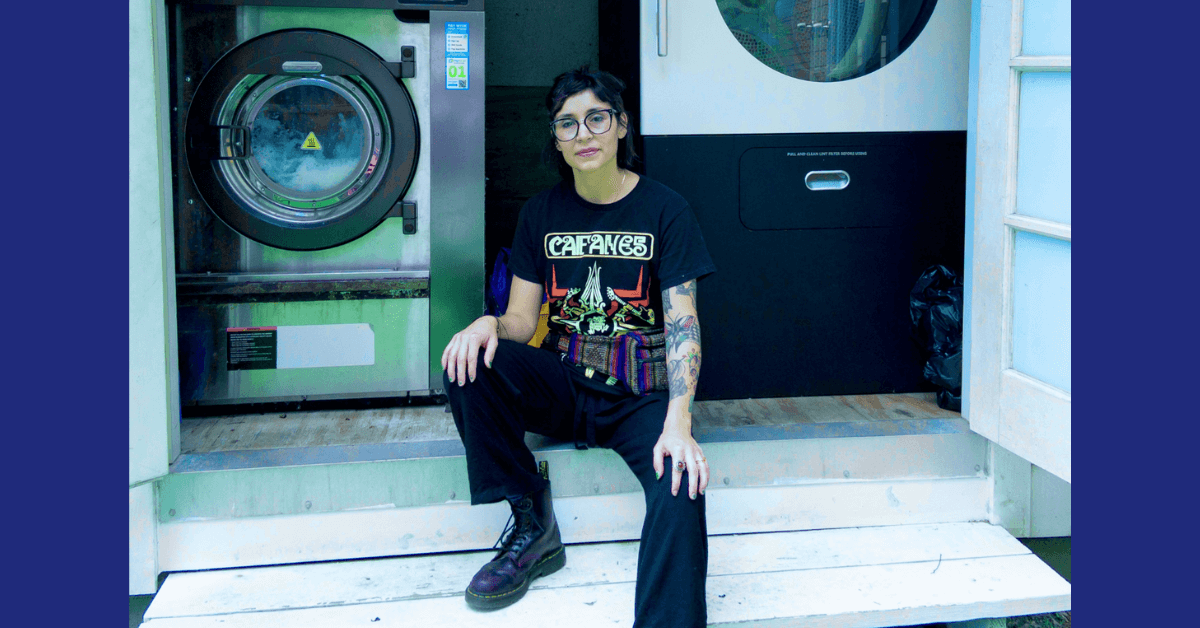A refugee’s story does not end once they’ve reached a host country. In fact, that is often just the beginning of their journey.
On World Refugee Day, join us in honoring the courage of refugees by amplifying their stories.
Our new project, Resettled, explores the displacement, trauma, and community integration refugees face when resettling in rural Appalachia. By giving a gift to the VOW Story Fund, you can make these untold stories heard.
Read more about the project in our editor Q&A below!  About our project lead: Katrina Powell is Professor of Rhetoric at Virginia Tech and is trained in oral history methodology at the Columbia University Oral History Institute. She has conducted several oral history projects in the U.S. and Sri Lanka, and has also published several books and articles using oral history methodology and analysis.Q: How did you get involved with this issue, and what inspired you to pursue this as an oral history project?
About our project lead: Katrina Powell is Professor of Rhetoric at Virginia Tech and is trained in oral history methodology at the Columbia University Oral History Institute. She has conducted several oral history projects in the U.S. and Sri Lanka, and has also published several books and articles using oral history methodology and analysis.Q: How did you get involved with this issue, and what inspired you to pursue this as an oral history project?
A: I am a professor in English at Virginia Tech and my research is focused on displacement narratives and rhetorics of autobiography, including oral history. My first book is about displacement of families via eminent domain from Shenandoah National Park and my second book compares displacement narratives across different events including eminent domain, natural disaster, government induced development, and civil unrest. In January 2017, the faculty, students, and staff at the Center for Rhetoric in Society at Virginia Tech were disturbed by the news of the travel ban. Several were already involved in volunteer work with the local Refugee Partnership, providing tutoring services and transportation to recently resettled families. The Center staff wanted to do something—something that would show there were people in the community who welcomed their new neighbors. We planned a small workshop, making queries to others across campus about their interest to be involved. We soon discovered that we weren’t the only ones with this inclination. We collaborated on several community-welcoming events, including a workshop to facilitate community interaction and provide an opportunity for community members to tell stories about their experiences. This network has spread to surrounding areas, with the plan to offer additional community events and to recruit narrators using oral history methodology.
 Q: What are some of the unique challenges refugees face upon arrival in the U.S., particularly in rural areas?
Q: What are some of the unique challenges refugees face upon arrival in the U.S., particularly in rural areas?
A: Our goal is to understand how living in a rural area not only presents opportunities different from an urban environment, but also presents challenges as some services are less available in close proximity. Based on our interactions with community members so far, we have a sense of some of these challenges; indeed, in listening to their stories we have come to understand how important it is to document the complexity of their experiences. Their experiences have generated questions about how efforts get coordinated across organizations, how the trauma of integration compares with the trauma of the initial displacement, how their new lives might not meet their expectations, and how meeting so many well-intentioned volunteers can be overwhelming. With this project we hope to find additional stories, additional ways of seeing the community integration and community building experiences of the narrators and we are very excited about this process of discovery. We anticipate that these discoveries will enhance our understanding of people’s transition experiences, and in turn can inform our networks of organizations and volunteers about ways to improve services and coordination efforts.
Q: What are the essential questions you hope to address with your project?
A: In this project we seek to understand networks of local, regional, federal, and volunteer efforts toward integration, including the human rights concerns as residents navigate the social service, health, and educational institutions facing funding and staffing challenges. These stories are important to understand how communities can leverage their efforts for newly resettled residents to thrive in their new locations. As qualitative data, these stories are critical yet underdeveloped components to measuring community integration. Our focus on this geographic community also highlights how academics, humanitarian aid agencies, community volunteers, and new residents come together for a common effort. Given the recent travel ban, together with the continued focus on rural Appalachia as a place of poverty and strife, we feel this is a particular moment in US history where communities are quietly doing the work of service to others. We hope to highlight an Appalachia not often written about. In fact, we see that both these communities (the resettled, Appalachians) often suffer from the “danger of a single story” (Adichie). Rather, our project hopes to counter “the refugee narrative” and the “Appalachian narrative” by placing these stories together. We know that Appalachia is not the only place where these broad networks are working together and we hope to highlight the stories that are not often told to provide a greater understanding benefits, together with the challenges, of welcoming new neighbors.
Q: What are some examples of stories you’ve heard so far that are particularly powerful?
A: Amal resettled to rural Virginia from Syria with her six children after first spending time in Lebanon. Her family’s initial move to a small city was quite difficult—her living conditions were worse than the camps. Her family then moved to a small town where her children now thrive in school and her husband works. She is taking English classes and is excited to have conversations in English. Despite the difficult transition, hers is a story of hope/community building. In addition, she has emerged as a community leader and is key in facilitating community gatherings.
Elvir arrived as a refugee from Bosnia 20 years ago. He now serves as a health care provider and on several community boards providing insight into the transitions of newly resettled families, particularly health literacy issues. After living in Appalachia for a while, he established a scholarship for refugees to attend the local community college because as he says, “education is so important to their success.” He has developed insight over time into the ways that families must navigate complex systems once they arrive in the U.S.
A mother from Afghanistan (name excluded) came to the U.S. with her child after spending time in a refugee camp and after being delayed in camps during the travel ban. While fluent in four languages, with no written literacy she relies on translators to navigate multiple services. This is especially challenging when meeting with mental healthcare providers in this rural area, as she must rely on translators during medical appointments, impacting her privacy and mental health care.
Q: How are you involving the community in this project?
 A: We have established partnerships with Catholic Charities, Blue Ridge Literacy, Blacksburg Refugee Partnership, Roanoke Refugee Partnership, The Refugee Coalition, and others to create the New River Valley Resettlement Coalition. This group is located in a unique rural landscape with several universities and volunteer networks in the area, coordinating with local and federal agencies. Through oral history we hope not only to tell the stories of the individuals impacted by displacement, but also to learn more about the ways that the hosting communities provide needed services. We also work closely with the Virginia Tech Institute for Policy and Governance (IPG), located near Washington DC, whose faculty work closely with State Department and other organizations responsible for immigration and refugee policy.
A: We have established partnerships with Catholic Charities, Blue Ridge Literacy, Blacksburg Refugee Partnership, Roanoke Refugee Partnership, The Refugee Coalition, and others to create the New River Valley Resettlement Coalition. This group is located in a unique rural landscape with several universities and volunteer networks in the area, coordinating with local and federal agencies. Through oral history we hope not only to tell the stories of the individuals impacted by displacement, but also to learn more about the ways that the hosting communities provide needed services. We also work closely with the Virginia Tech Institute for Policy and Governance (IPG), located near Washington DC, whose faculty work closely with State Department and other organizations responsible for immigration and refugee policy.
Q: What do you see as the potential impact of having these stories told?
A: We seek to understand networks of local, regional, federal, and volunteer efforts toward integration, including the human rights concerns as residents navigate the social service, health, and educational institutions facing funding and staffing challenges. We see our project as a deep examination of an old way of life, a narration of their experience getting here, yet also of a hope for a new way of life, the merging of ways of life as people make rural Appalachia their community. We hope to amplify the voices of people in the day-to-day midst of making their lives work in their new communities, the various difficult choices they must make daily, and the simultaneous feelings of gratitude and fatigue as a parade of well-meaning volunteers are intimately inserted into their lives. Appalachia is often seen as a monolithic community that does not welcome people of difference. With the history of slavery and racism in the area, this view is not unfounded; however, people who live in the region know that goodwill, sacrifice, welcoming newcomers, and helping neighbors (new and old alike) is part of the fabric of many communities, sometimes in direct resistance to the bigotry that exists and sometimes simply because people are service minded and committed to helping others who need it. This goodwill is sometimes written about in the media, but is often overshadowed by negative reporting and stereotypes about the region. As residents and products of this area, we know there are more stories to tell to emphasize the complexity of the people who live here.Voice of Witness relies on support from our community to bring these oral history projects to life.
With a gift to the VOW Story Fund, your support will:
- Allow Katrina to travel for interviews and build face-to-face trust with narrators
- Provide oral history training to community members so they can participate in the storytelling process
- Bring these crucial stories to classrooms, bookstores, and communities across the country
DONATE




